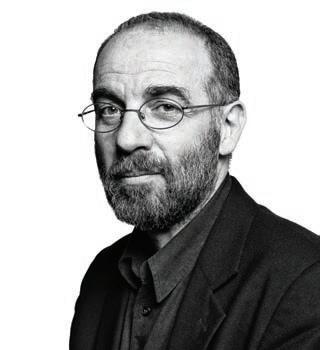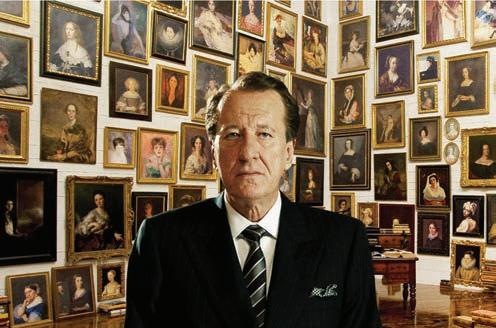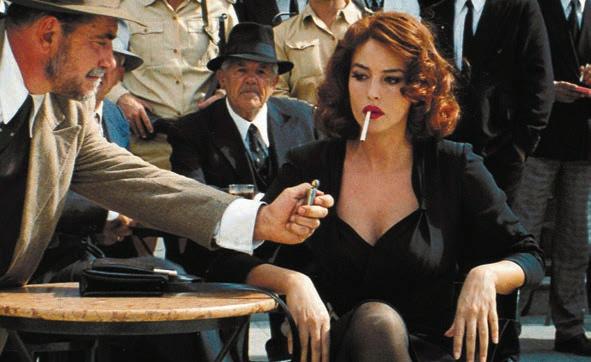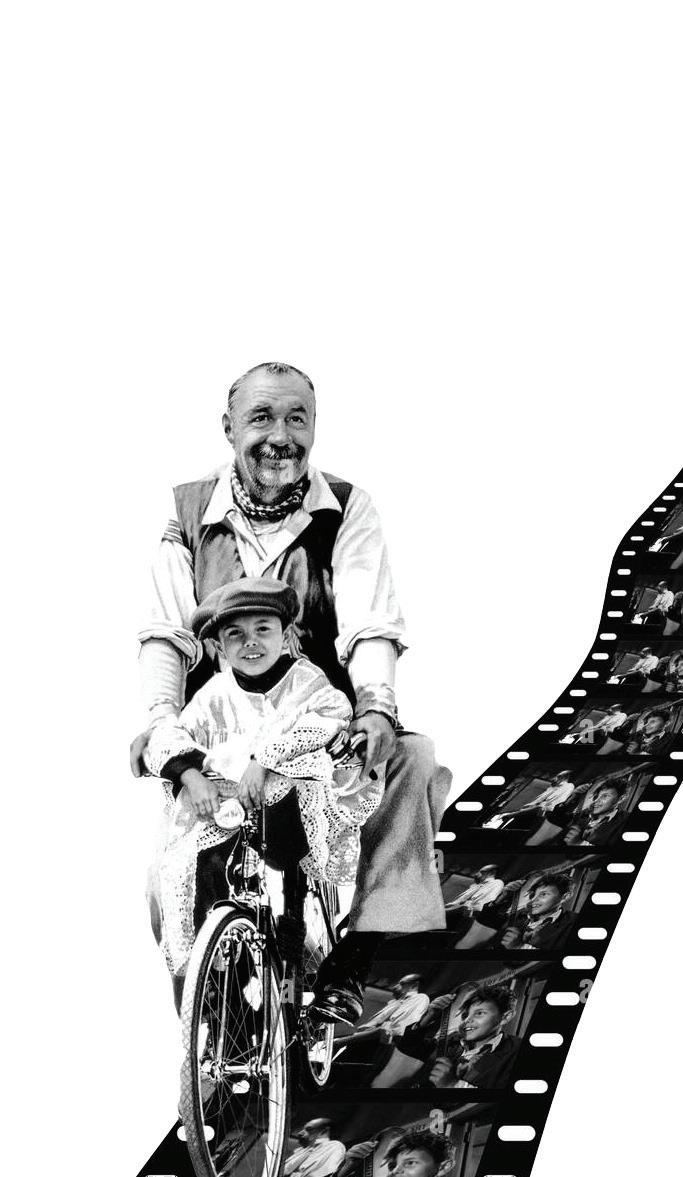
4 minute read
Giuseppe Tornatore
from ICFF 2022 - Program Booklet
by ICFF
22 | ARTICLE
GIUSEPPE TORNATORE
Advertisement
“Giuseppe Tornatore is one of the few authentically original voices to emerge in the cinematic world over the past 40 years. He champions community values, solidly grounded in emotional engagement and interaction, over the brash, loud, self-proclaiming egocentricity that has increasingly dominated western societies since the nineteen-eighties .
by Carlo Coen
Yet, viewed superfi cially, his narratives appear old-fashioned, fl irting frequently and precariously with overt melodrama and sentimentalism while managing nevertheless to mount a powerful critique of what our societies have become . . . Tornatore subtly employs every technical device at his disposal to enforce the spectator’s identifi cation with the wistfulness of his protagonists, in their growing awareness of a sense of personal loss and nostalgia.“ This is how Doug Thompson from University of Hull summarised brilliantly the core of Giuseppe Tornatore’s cinema, as well as his contribution to our comprehension of the contradictory nature of the times we live in. When we talk about Giuseppe Tornatore, we mean Sicily. This great Italian director has in fact dedicated much of his career to the representation of the island where he was born and raised. Later, he detached himself from his origins, and explored new paths, themes of a profound and broader universality. This could happen precisely because he had been able to fully come to
terms with his Sicilian roots: Cinema Paradiso (1988), Everyone Is Fine (1990), The Star Maker (1995), Malena (2000), Baaria (2009), the documentary The Three-pronged Screen (1995) Tornatore's Sicily, the Sicily of the past, the one that no longer exists, is represented above all in Cinema Paradiso, the fi lm that revealed him, and that immediately qualifi ed him as the director who regained to Italian cinema the prestige and the critical acclaim it had lost in the criCinema Paradiso, the fi lm that sis of the Eighties. Cinema Paradiso not only is a fi lm revealed him, and that immediately dedicated to Cinema as “Dream Factory“, but also to qualifi ed him as the director who human relationships. regained to Italian cinema



Tornatore's cinema is based on emotions, but it does not strike under the belt, it is not “emotional“ in a reductive way. Many of his lms explore the feeling of nostalgia, but Tornatore has also shown us that he can describe the complexities of the human intellect, with A Pure Formality (1994), The Best Offer (2013) and The Correspondence (2016).




Even The Star Maker, although it is a story of deceit, fully belongs to Tornatore's homage to his beloved Sicily; an extremely clear tribute is also found in Malena. The later Baaria (it stands for Bagheria, the small town where he was born and raised) is the fi lm that evokes the loves, the dreams, and the disappointments of an entire community and (for the moment) is Tornatore’s last work on the nostalgia for a bygone time. And his major merit, the secret of how he has succeeded in involving viewers so deeply, lies in reminding us that we are made of heart and brain; conversely, his less nostalgic fi lms have a very strong emotional charge These fi lms expand outside of Sicily, exploring limitless horizons, as Tornatore once again conveys to us his nostalgic vision of the world, as in The Legend of 1900; or presents us with refl ections of a breadth that can be defi ned as cosmic, as in The Correspondence; or works on a script-plot full of mystery and twists, as in A Pure Formality, or -in an even more intricate, sophisticated and fascinating way- in The Best Offer. Both Tornatores, the Sicilian and the international, bear the signs of his authorial imprint, of his unmistakable style. His documentary fi lm Ennio contains, on closer inspection, the same elements: a deep love for cinema, as the art form of his life (and of the life of all of us); but also, a deep sense of love for Ennio Morricone, his closest mentor and collaborator, who accompanied him for all his fi lms starting from Cinema Paradiso. Nostalgia, fond memories, affectionate feelings: all elements that are made harmonious with each other by a deep knowledge of the craft of cinema, never treated with excessive or facile approach.











